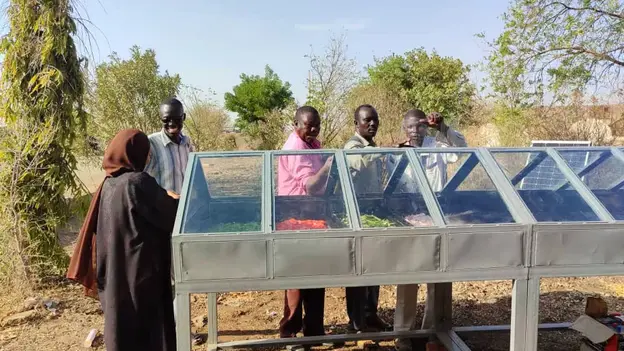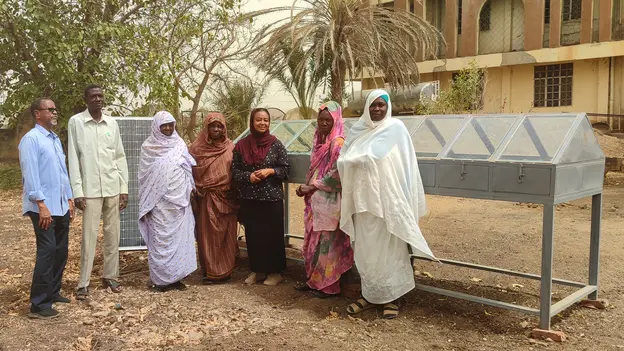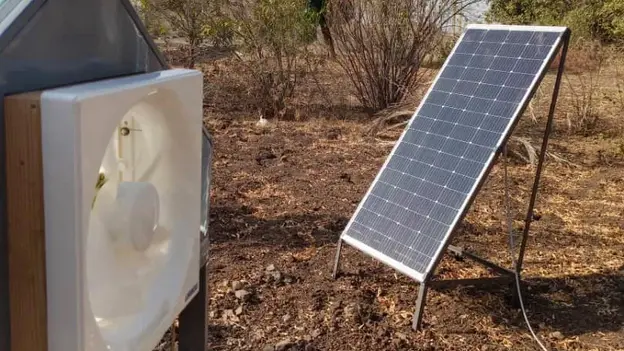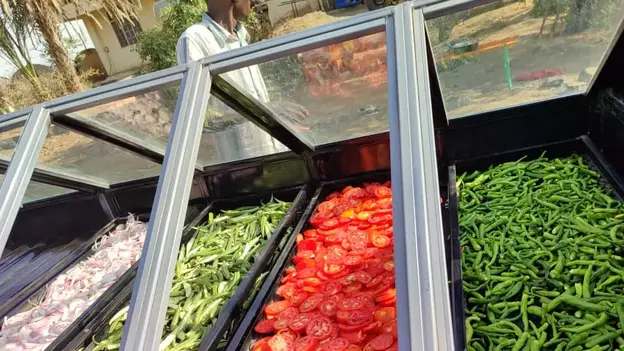Tandem Project
Low-Cost Preservation Methods of Vegetables
In the United Nations’ 13 Goals of Sustainable Development, sustainable consumption and production is one of the three main concerns and necessities for sustainable development. Sustainable consumption also intersects with poverty eradication and natural resource management, which all drive economic and social development.
It has been assessed that more than 40% of the food produced for human consumption across the Sub-Saharan African countries, including Sudan, is lost or wasted. Most of these losses occur at the post-harvest and harvesting process stages, one of the reasons being a lack of appropriate drying facilities.
Solar energy drying tackles the challenge of food waste in a simple and low-cost way. However, the application of this low-cost technology in Sudan is limited, particularly in small farms. Therefore, further research in this field is needed to improve the efficiency and increase the distribution and usage of solar drying for fruits and vegetables.
Enhancing the Solar-Powered Tunnel Dryer
In 2019, AGYA alumni Dr. Philipp Blechinger and Prof. Dr. Amro Babiker Hassan Eltayeb effectively developed and constructed a low-tech solar-powered tunnel dryer to meet the initial requirements of drying date fruits in small farms in Sudan. The prototype of the tunnel dryer was built within a workshop in Berlin, in cooperation with the ‘Energieseminar’ of the Technical University Berlin. The workshop also produced a construction manual for a DIY solar dryer, which can be viewed here.
This follow-up project, conducted in collaboration with AGYA member Prof. Dr. Tilal Abdelhalim, aims at enhancing the solar-powered tunnel dryer using low-cost material, applying its use to other fruits and vegetables including onion, okra, rosella flower, tomatoes, lemon, and hot pepper. During drying and storage, the changes in the quality, nutritional, and safety characteristics of the solar-dried products are constantly evaluated. The project also entails assessing alterations in the quality, nutritional content, and safety features of solar-dried products over storage duration. Moreover, it adopts an interdisciplinary approach to sustainable development by integrating the research fields of economics, renewable energy engineering, and food science.
Empowering the Community
The results are made available to the local farmers via an illustrated open access manual. During field school days, 25-30 local farmers are introduced to the construction and handling of the solar dryer as well as with the benefits. This initiative especially encourages women's economic empowerment and entrepreneurship. It decreases the loss of farm products and reduces women's labour burden.
Relying on performance tests and a construction model, the solar dryer model demonstrates its capability to be duplicated. Some organizations and government representatives have expressed their intention to work together to improve the design's scalability and reduce construction costs to make it accessible to a wide range of Sudanese farmers.
- Disciplines Involved
- Food Science and Technology, Electrical Engineering, Biotechnology and Plant Science
- Cooperation Partner
- Environment & Natural Resources & Desertification Research Institute (ENDRI), Sudan & Agricultural Research Corporation (ARC)
- Project Title
- Solar-dried Fruits and Vegetables
- Year
- 2023
- Funding Scheme
- Tandem Project
- Countries Involved
- Sudan, Germany, Saudi Arabia






